Best Time for Pool Equipment Repairs
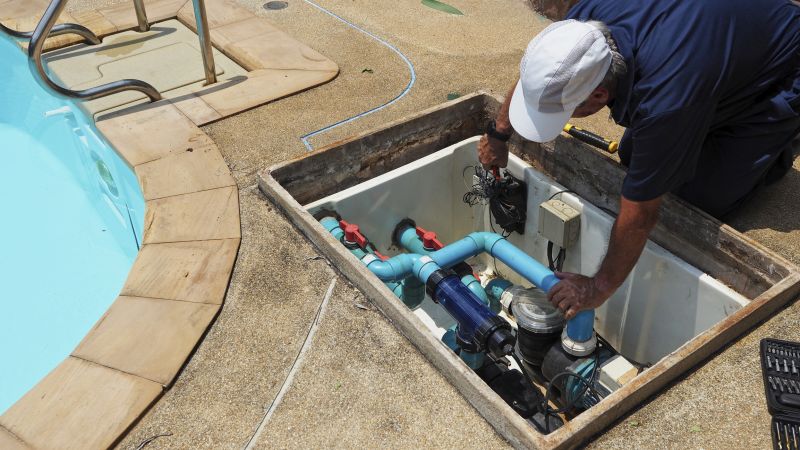
Perform repairs during the off-season to minimize pool downtime and ensure equipment is ready for peak use periods.
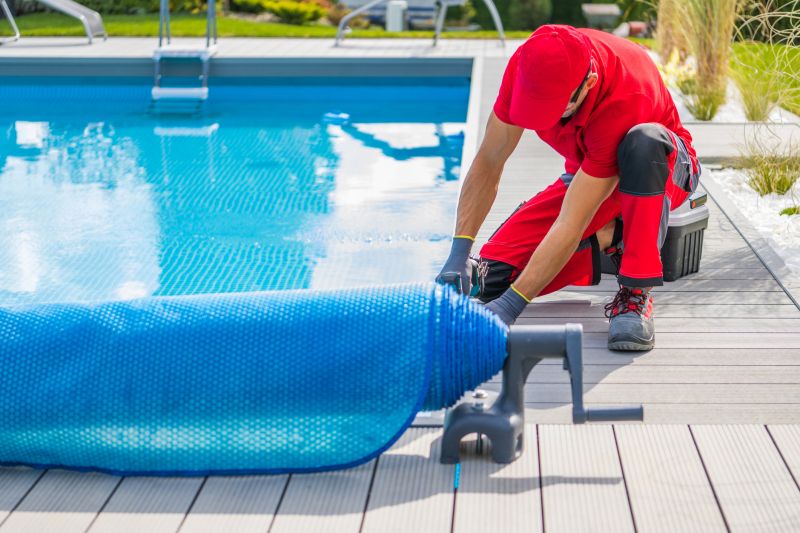
Address equipment issues before the swimming season begins to prevent disruptions and costly emergency repairs.
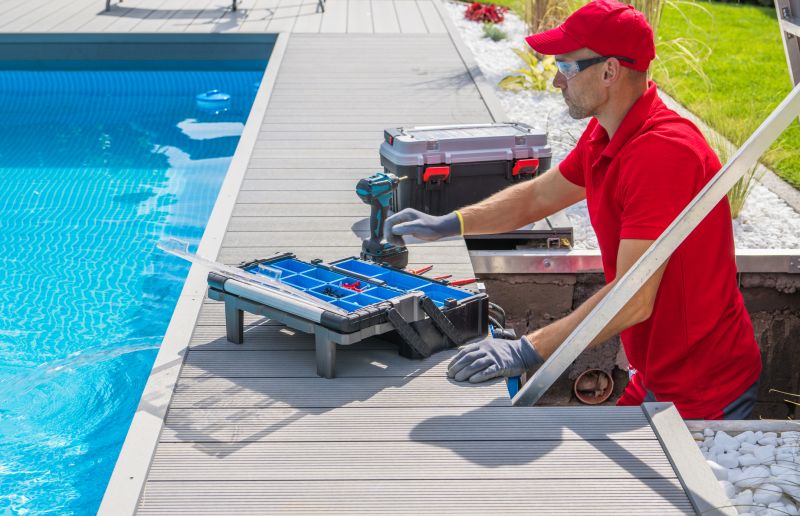
Inspect and repair pool equipment after the season to extend lifespan and prepare for the next season.
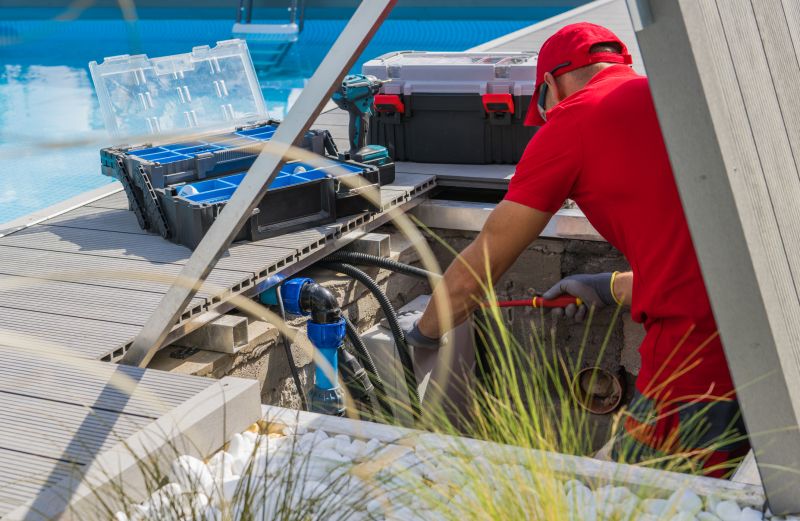
Ways to make Pool Equipment And Parts Repairs work in tight or awkward layouts.
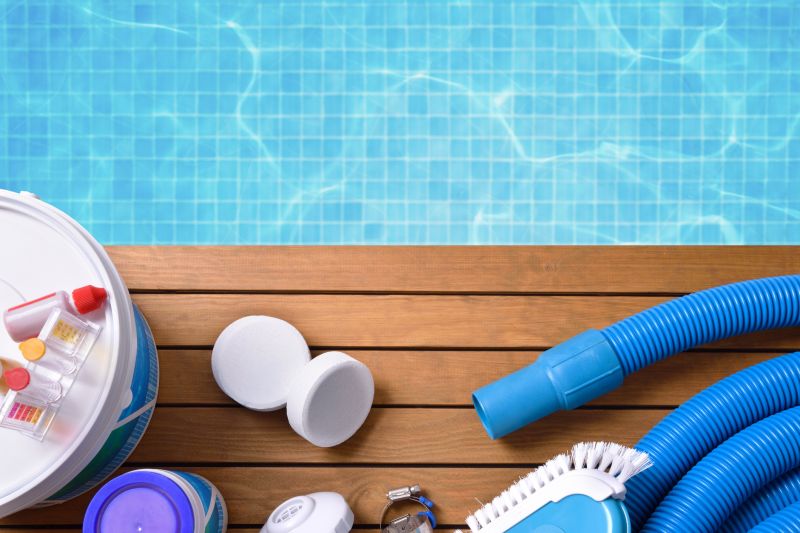
Popular materials for Pool Equipment And Parts Repairs and why they hold up over time.
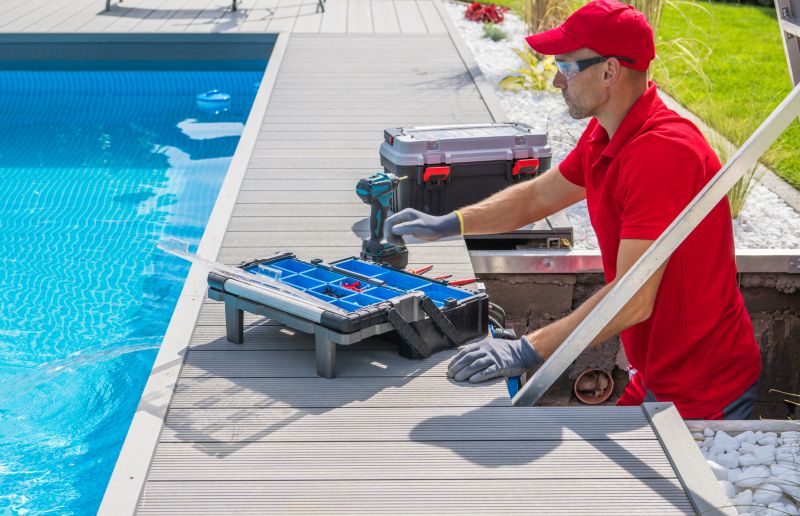
Simple add-ons that improve Pool Equipment And Parts Repairs without blowing the budget.
Pool equipment and parts repairs are essential for maintaining optimal pool performance and ensuring safety. Regular maintenance can prevent costly breakdowns and extend the lifespan of vital components such as pumps, filters, and heaters. Statistics indicate that proactive repairs can reduce energy consumption by up to 30%, saving costs over time. Understanding the best timing for repairs can help pool owners plan effectively, avoiding peak usage periods and ensuring equipment functions reliably when needed most.
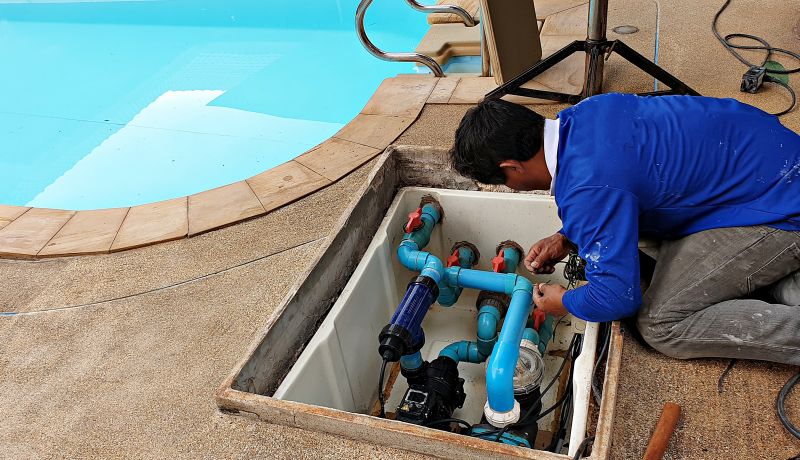
Ensuring efficient water circulation and energy savings.
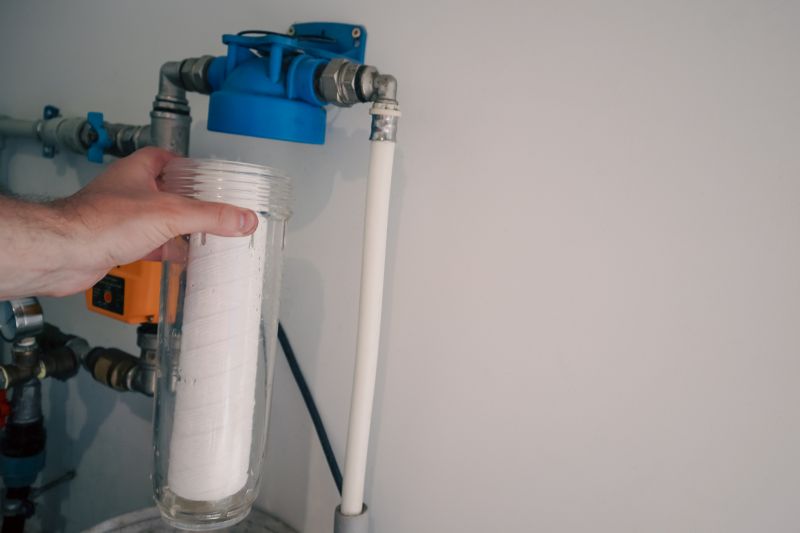
Maintains water clarity and prevents contaminants.
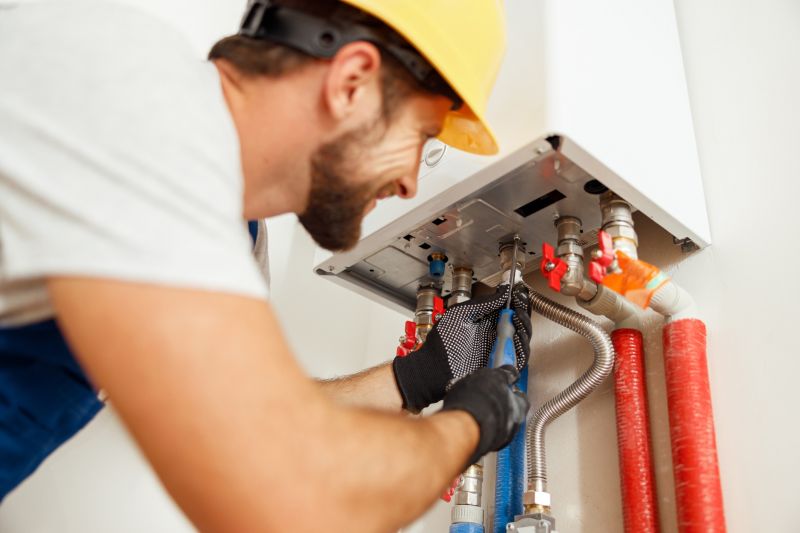
Provides reliable temperature control for comfort.
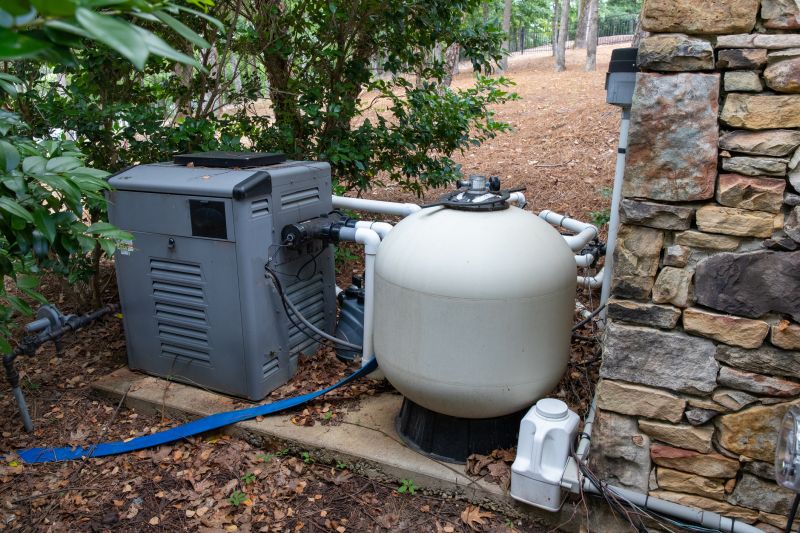
Prevents leaks and maintains system integrity.
| Optimal Repair Timing | Benefits |
|---|---|
| Off-Season | Minimizes pool downtime and prepares equipment for peak use |
| Pre-Summer | Prevents breakdowns during high demand and ensures readiness |
| Post-Season | Extends equipment lifespan and reduces emergency repairs |
| During Low Usage Periods | Allows for repairs with minimal disruption |
Regular inspections and timely repairs are crucial for maintaining the efficiency and longevity of pool equipment. Addressing issues early can prevent more extensive damage and costly replacements. Proper timing ensures that repairs do not interfere with swimming schedules and helps maintain water quality. Planning repairs during less busy periods optimizes resource allocation and reduces operational interruptions.
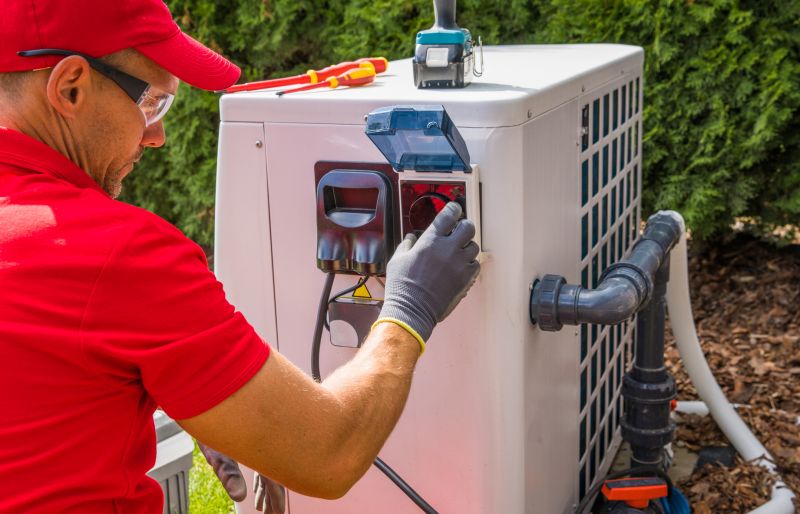
Keeps water moving efficiently and reduces energy costs.
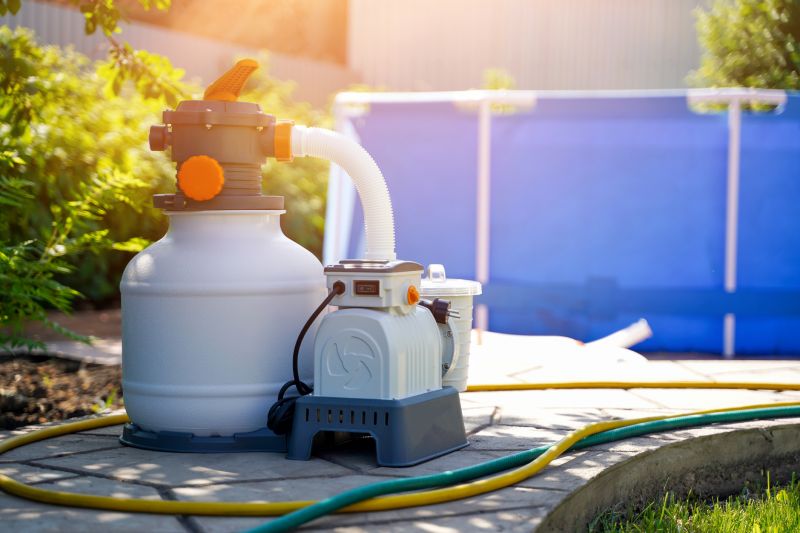
Ensures clean, clear water for swimmers.
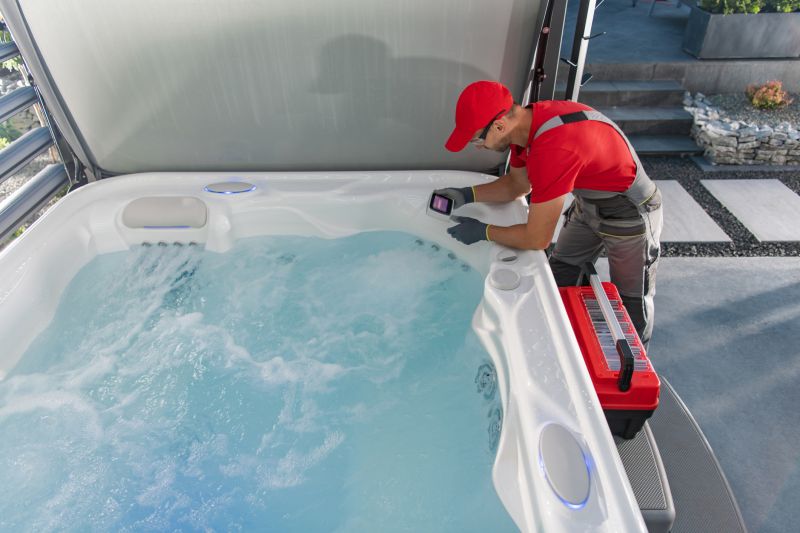
Maintains consistent water temperature.
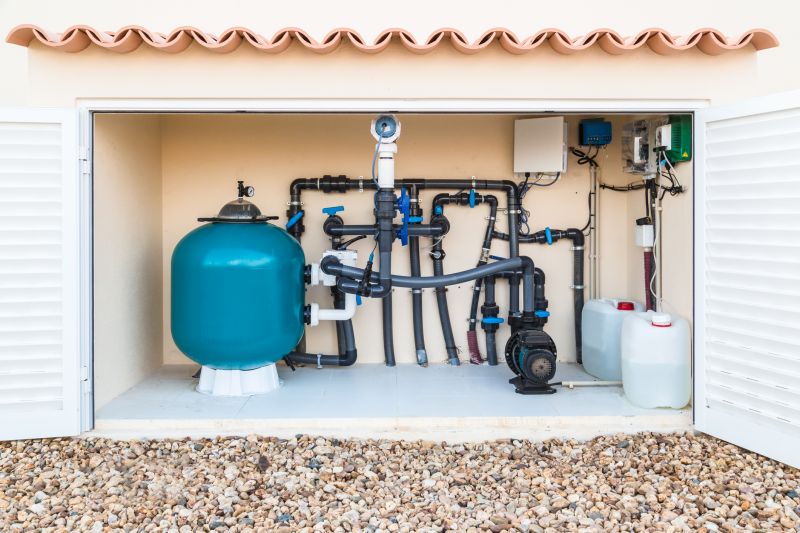
Prevents water loss and structural damage.
Repairs are best scheduled during off-peak seasons or low usage periods to minimize disruption and ensure readiness for peak swimming times.
Regular inspections are recommended at least once per season to identify potential issues early.
Indicators include unusual noises, decreased water flow, leaks, or inconsistent heating.
Yes, but scheduling during low-demand periods is preferable to avoid interrupting pool use.
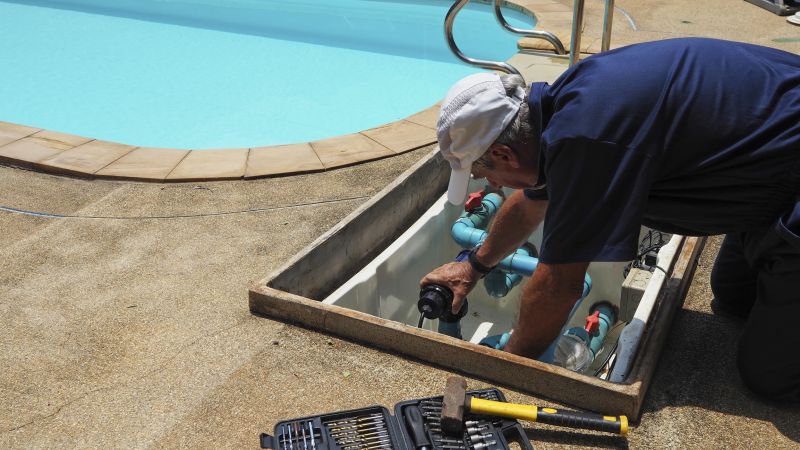
Technicians diagnosing and fixing pool systems.
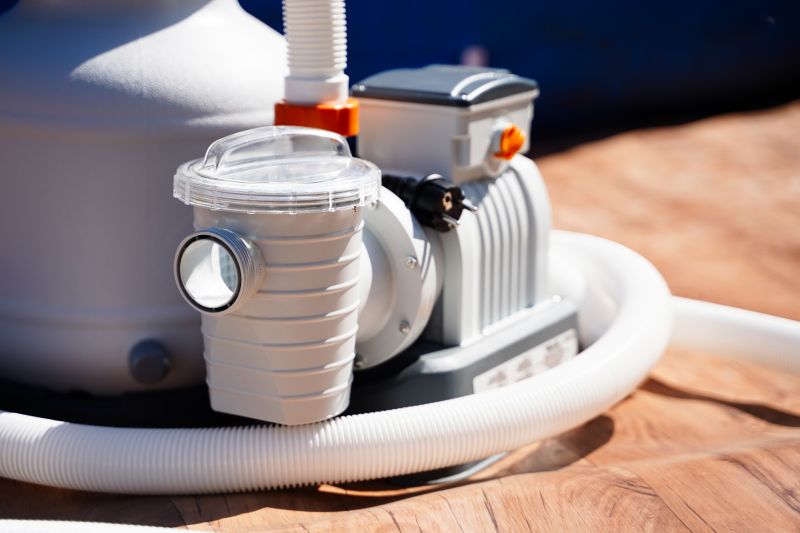
Ensuring water clarity and system efficiency.
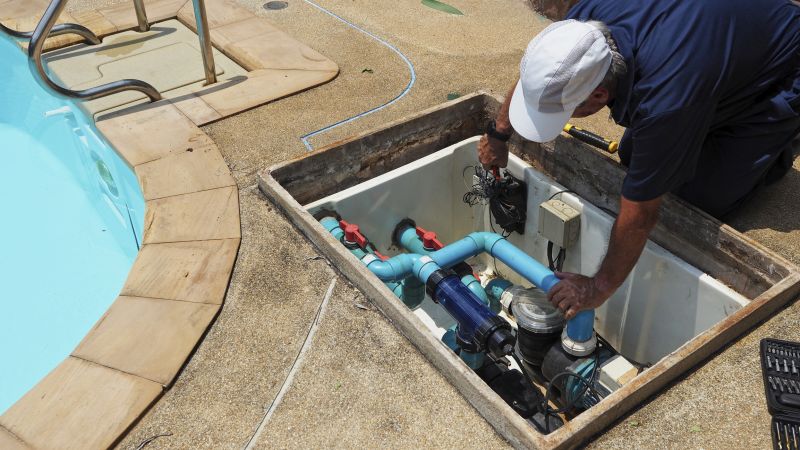
Checking for leaks and performance issues.
Interested in maintaining optimal pool performance through timely repairs? Filling out the contact form can connect pool owners with experienced technicians who specialize in pool equipment and parts repairs. Proper scheduling and maintenance contribute to a safe, efficient, and enjoyable swimming environment.
